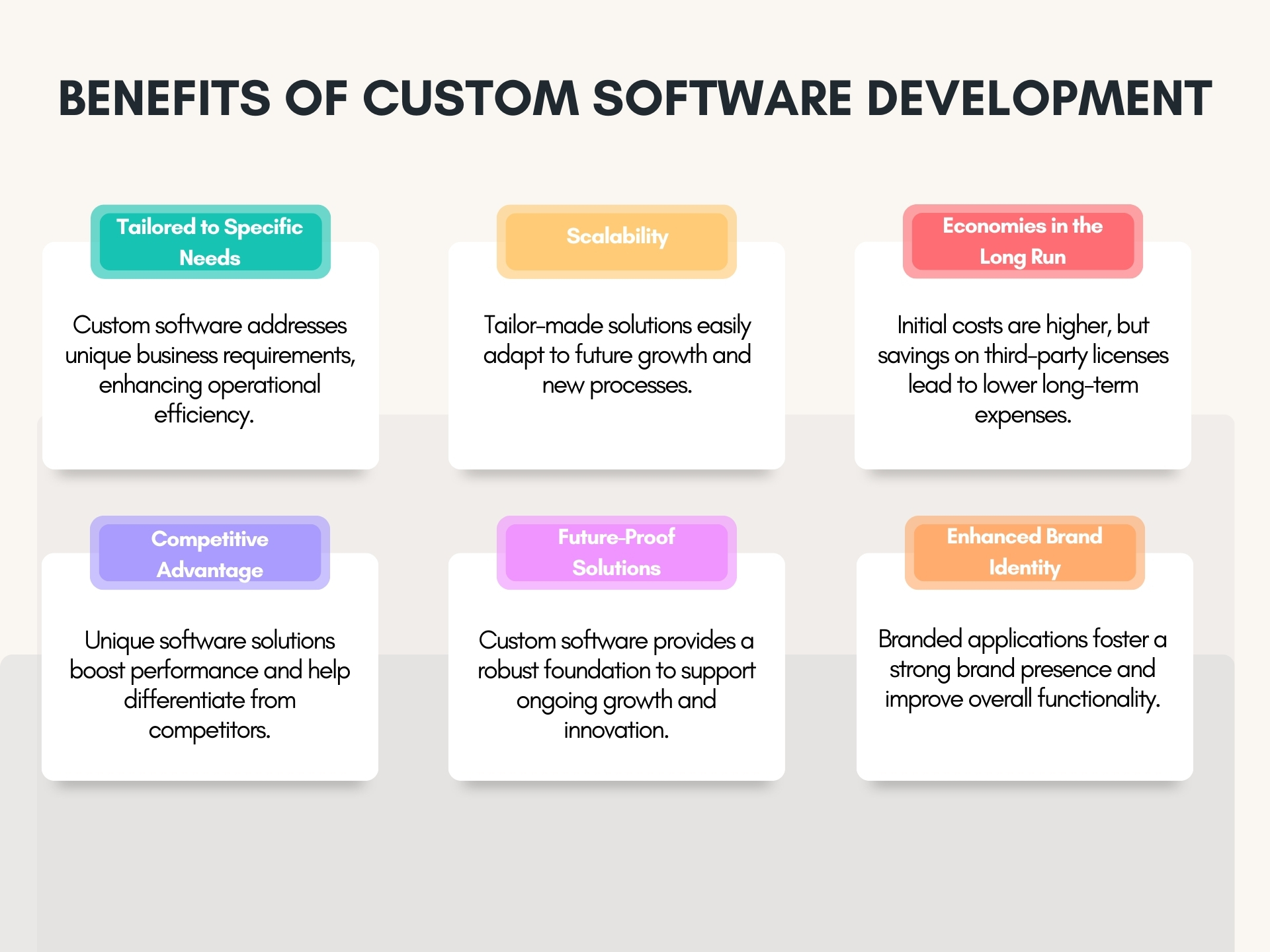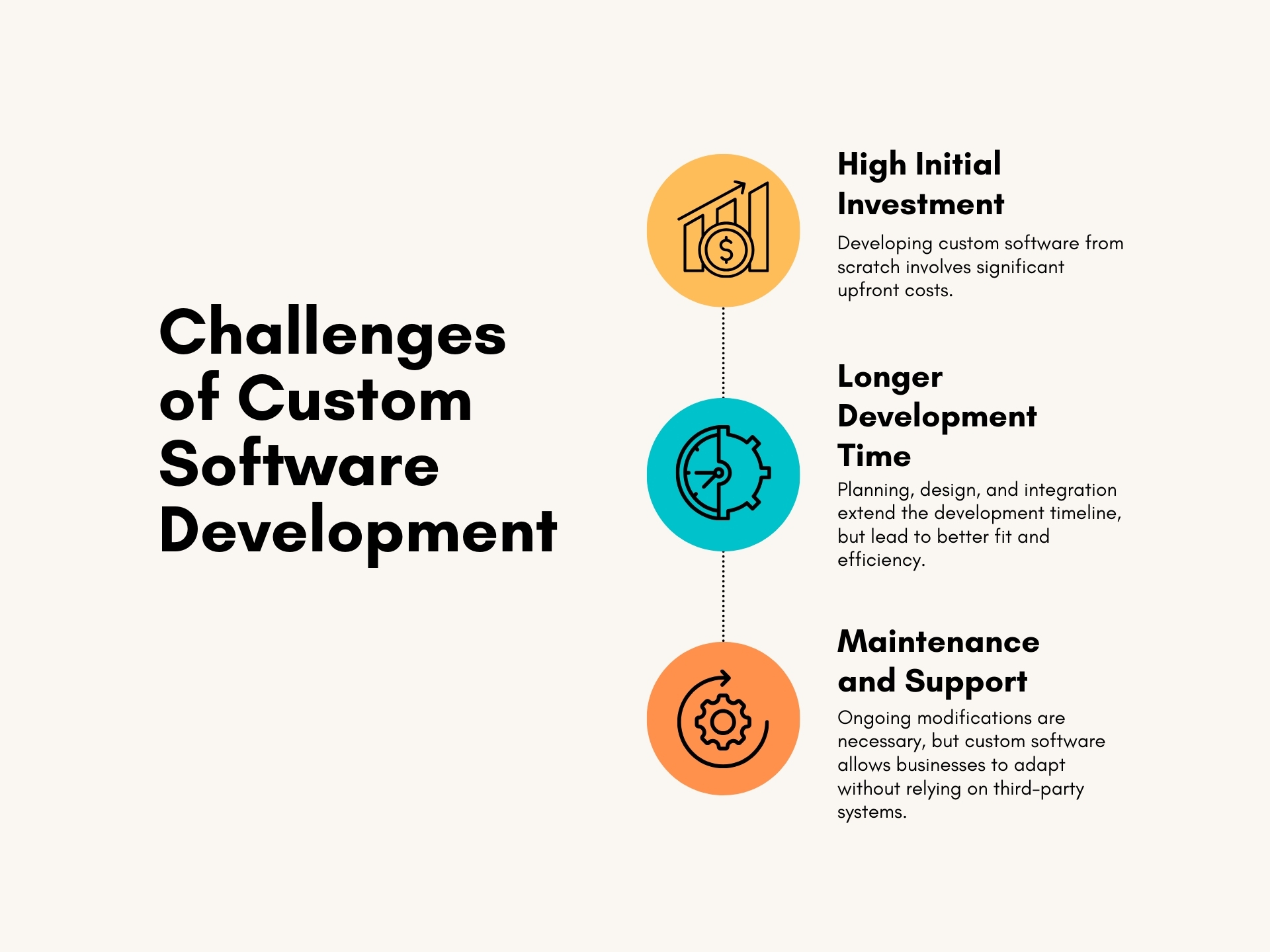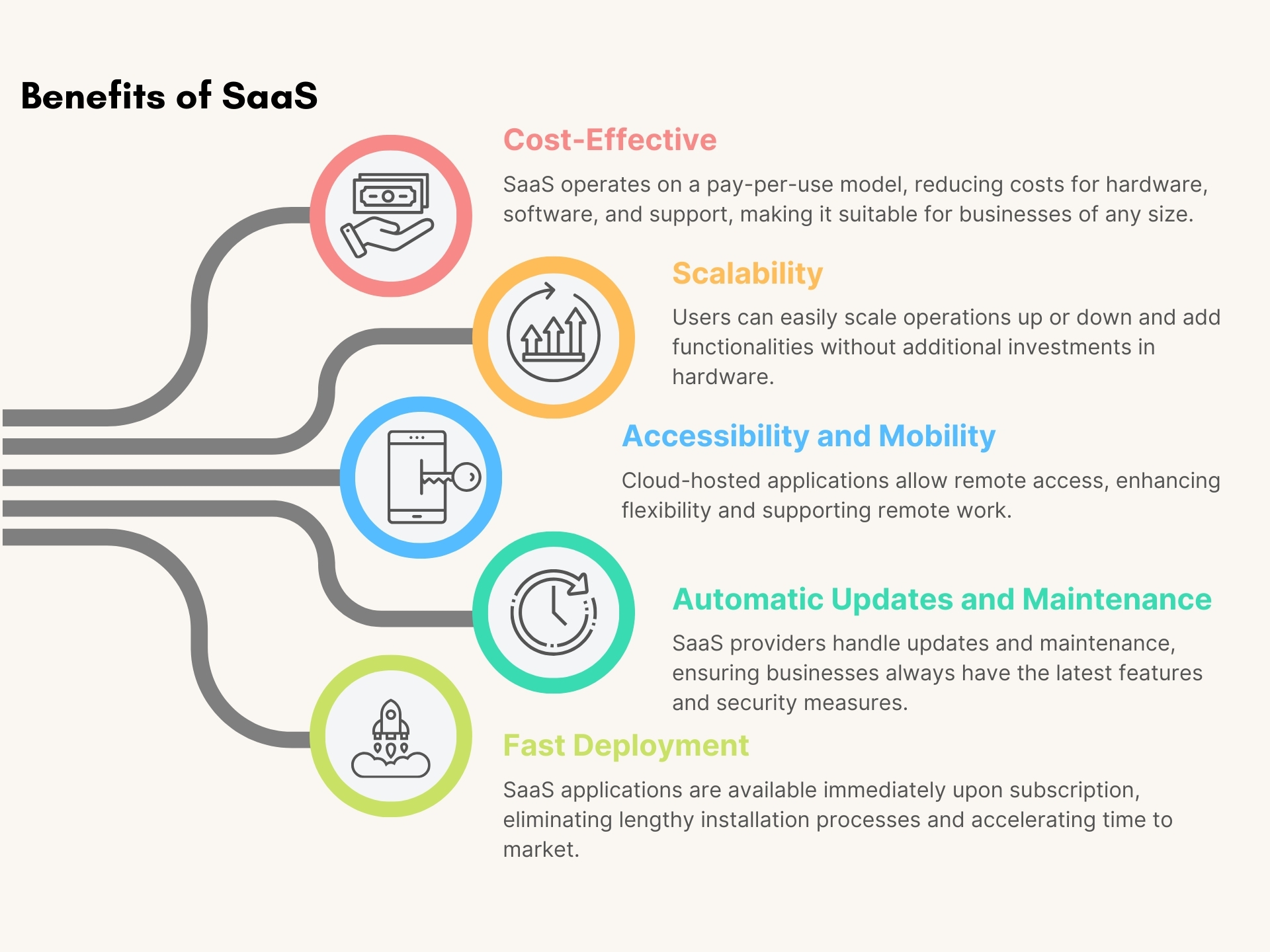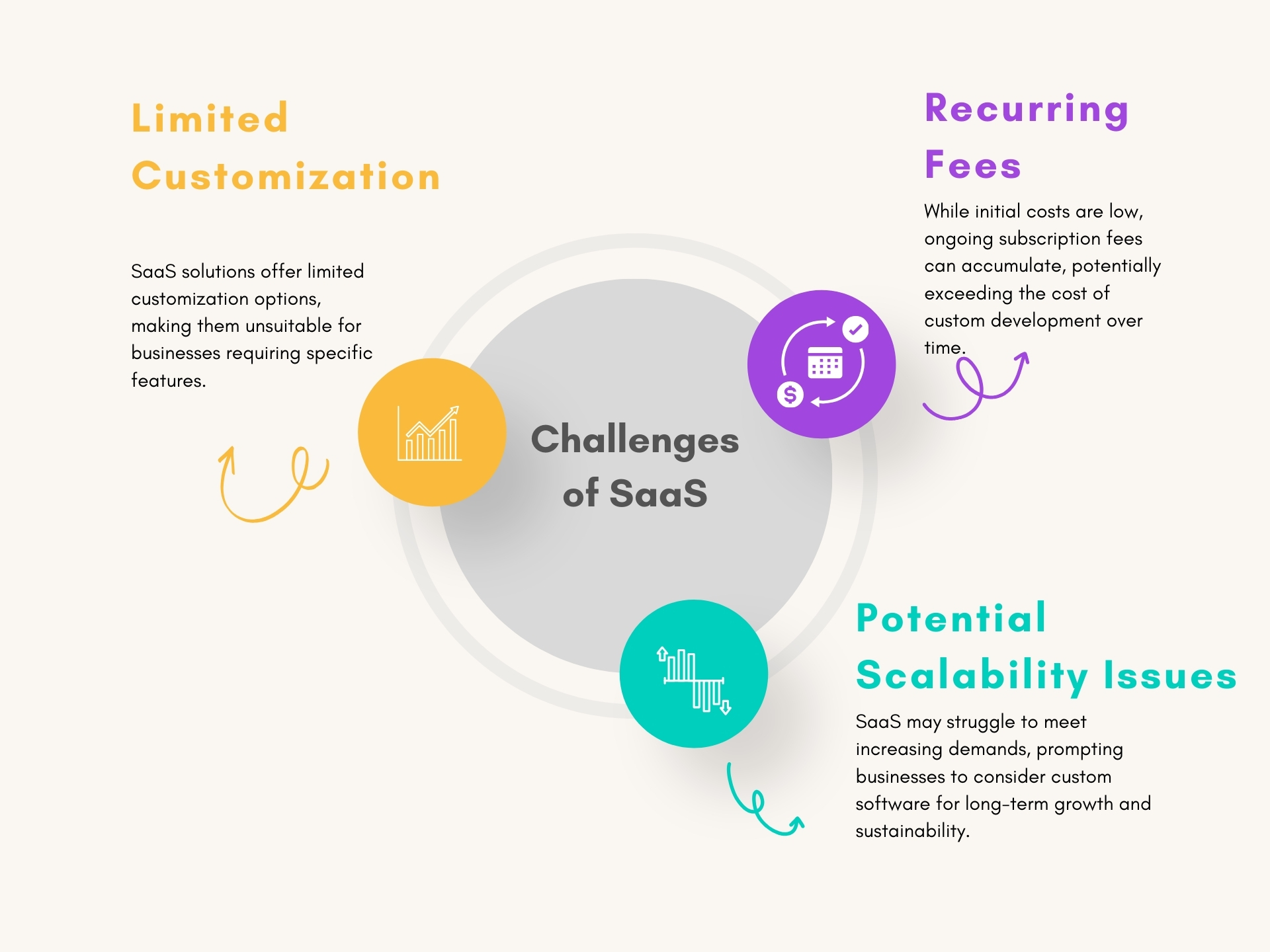Customised software vs SaaS: Which solution is best for your business?
13 min read . November 7, 2024
Introduction
In today’s digital landscape, in order to achieve success, it is very important to select the right software solution. Choosing between custom software development and Software as a Service(SaaS) is a crucial step that would impact the efficiency, growth, and long-term prosperity of your company.
Custom software offers tailored solutions designed to meet your specific needs, while SaaS provides options that are ready-made and scalable. Both the approaches come with their own set of strengths and weaknesses, from cost considerations to flexibility and scalability. Whether it is a startup that is looking for quick deployment or an established enterprise seeking a customized solution, it is vital to understand the pros and cons of each option.
In this blog we will explore the key differences between custom software development and SaaS by taking into account essential factors such as initial investment, ongoing costs, adaptability, and potential for long-term return on investment.
Let’s dive in and explore how to make the best choice for your unique business needs. We�’ll provide you insights that would help navigate through this critical decision, ensuring that you choose a solution that would align with your business goals and drive sustainable growth.
Overview of Custom Software Development
Custom software development design solutions that fit to the needs of an organization and are hence more focused towards the actual needs of an organization. From the unique CRM systems to the peculiar work flows and the tailored dashboards, custom software comprises concrete solutions.
Benefits of Custom Software Development:
-
Tailored to Specific Needs: Custom software is tailored to meet a specific purpose and is highly specific and directly connected to the enterprise’s activities - e.g. a particular CRM system, workflow, or dashboard.
-
Scalability: Since custom solutions are tailormade, it is easier for the business to expand and accommodate the new processes and the new functions that the enterprise will have to incorporate in the future.
-
Economies in the Long Run: Though custom software development is costlier initially, no additional expenses need to be made on third-party software licenses or other external solutions.
-
Competitive Advantage: Businesses have the opportunity to leverage specific software solutions to improve performance and stand out from their competitors in the market.
-
Future-Proof Solutions: By providing a strong foundation to work around, custom software aims at keeping up with future growth and innovation.
-
Enhanced Brand Identity: Custom branded applications can be branded and also personalized and this not only assists the business to function well but also helps in maintaining its brand essence within its functions.

Challenges of Custom Software Development:
-
High Initial Investment: Since it is a one-time investment, creating a new software from scratch can be a very expensive process.
-
Longer Development Time: Since creation of a custom software involves planning and design, along with its integration into the business environment, it requires time. However, when the solution is implemented, it guarantees better fit and higher efficiency.
-
Maintenance and Support: Custom software requires constant modifications and frequently the costs of these changes are balanced by the fact that businesses can easily adapt the software to their needs without constantly upgrading or replacing third-party systems.

Overview of SaaS
SaaS(Software as a Service) is a type of software deployment model with applications being centrally hosted with the help of a provider and can be accessed via the Internet. Custom software development is designed from the ground up for your business purposes, while SaaS involves built-in solutions that may be applied immediately without having to invest much time in development.
Benefits of SaaS:
-
Cost-Effective: SaaS is available on a pay per use basis and therefore the cost of hardware, software and support is relatively low as compared to other models and can hence accommodate business of any size.
-
Scalability: There is no limitation in the size of the business operation. The users can scale up or down, or incorporate new functionalities to the plan without requiring further investment in new hardware or infrastructure.
-
Accessibility and Mobility: Since SaaS applications are hosted in the cloud, they can be accessed through the web and are hence more flexible and support remote working.
-
Automatic Updates and Maintenance: SaaS makes sure that the business is always up-to-date with the latest features and security measures as the SaaS providers are responsible for any updates, patches, and maintenance of the software.
-
Fast Deployment: SaaS applications are readily available for use as soon as the business subscribes to the service and this avoids lengthy installation processes and long time taken to market for the businesses.

Challenges of SaaS:
-
Limited Customization: Since SaaS solutions are designed for a wider audience, it results in limited customizable options. If there is a need for business specific features and functionalities, then SaaS will not suffice for those requirements.
-
Recurring Fees: Although most SaaS solutions offer low initial costs, they require recurrent fees in the form of subscriptions. When these costs accumulate, sometimes SaaS can turn out to be more costly than custom application development.
-
Potential Scalability Issues: SaaS may not be able to meet the increasing demands and this may make the business opt for customized software to attain sustainability and advancement.

Cost Comparison: Custom software development vs. SaaS
| Custom Software Development | SaaS |
|---|---|
Involves significant upfront costs for planning, designing, coding, and testing. | Involves lower initial costs through monthly or annual subscription fees, covering usage, automatic updates, and basic support. |
Custom software can have a decreasing TCO over time, with no recurring subscription fees, but ongoing maintenance and updates are necessary. | Recurring payments can accumulate, potentially leading to a higher TCO over several years, especially for growing businesses requiring more users or features. |
The choice between custom software and SaaS ultimately depends on factors such as budget, scalability needs, and desired level of customization. TCO analysis across different periods enables organizations to determine the most suitable solution that meets their current and future needs within the context of cost and business value.
Flexibility and Customization
Custom software is totally flexible to fully meet the need, workflow and different processes of businesses since its solutions can be fully modified to meet the business needs. It can be developed to meet specific needs of certain industries and manage difficult processes that standard software typically fails to manage.
For instance, a logistics company that requires a uniquely designed tracking or reporting system would benefit from custom software due to the stringent regulatory laws they have to adhere to. These organizations use tools that can align with their changing business processes or procedures and complex work environments.
On the other hand, SaaS solutions are designed for everyone and provide a feature set that is used by most companies without distortions. SaaS can prove useful when distinct functionalities are needed like CRM or simple accounting for a business.
For a small business that is trying to manage its finances or a start-up that needs to organise the customer database, SaaS model would be the best option because it is easy to set-up, is updated frequently and has reasonable prices.
There may be some situations when the offered degree of customization of SaaS is insufficient for companies in specific industries with specific tasks or companies with non-trivial business processes. Inorder to improve performance, automate business processes, and gain a cutting-edge solution, custom software is the key.
Although SaaS solutions require little implementation time and are cheaper in the short term, custom software addresses every aspect of an organization’s needs, making it most suitable for businesses with changing needs.
Scalability and integration
While deciding between custom software vs SaaS solutions, it is important to understand factors such as scalability and integration as they may define the future potential of your business. Scalability is simply a measure of the capacity of a system to expand, especially in order to accommodate additional workloads.
Custom software can be developed specifically for the purpose of addressing specific needs of continued business development like the control of high volume orders during peak sales periods. SaaS solutions utilize differentiated pricing strategies, which call for an escalated charge as the user numbers or data storage increase.
Functionality is critical and identifies how well the chosen solution integrates with other systems or enhancements appended in future. Depending on the client’s needs, custom software can be created in such a way that integration between different platforms would be possible, thus facilitating efficient data flow. Though SaaS options come with built-in integrations, they can be incompatible with legacy systems, which may restrict versatility.
Advantages:
| Custom Software Development | SaaS |
|---|---|
| Unlimited scalability potential | Quick deployment |
| Tailored integrations for unique business processes | Standardized integrations |
| Long-term cost-effectiveness for growing businesses | Lower initial costs |
The choice totally depends on the specific needs of your organization. For businesses that work under a long-term business strategy that entails complex integration, custom solutions will be most suitable.
On the other hand, for those needing quick implementation and standardized processes, SaaS would be the apt choice. Assessing your scalability and integration needs is essential for making an informed decision that aligns well with your business goals and future growth plans.
Data security and ownership
When it comes to choosing between custom software and SaaS, data security and ownership should be at the top of your priority list.
Custom Software:
• Full control over data (storage, access, security)
• Company owns entire infrastructure
• Can define own security protocols, encryption standards, and access controls
• Suitable for businesses dealing with sensitive personal information (e.g., healthcare, finance)
• Compliant with strict standards (HIPAA, GDPR, etc.)
• Permits data storage and security according to business needs
• No exposure to third parties
SaaS Solutions:
• Data ownership can be an issue
• Security may be questionable as data resides on third-party servers
• Major providers known for compliance with strong security measures
• Business risks due to reliance on provider for data protection
• Risks of data breaches
• Potential provider availability issues
• Limited options to customize security measures
• Need to determine data ownership policies
• Possible restrictions on data access or usage when changing service providers
In terms of data ownership, custom software development is more advantageous for security and compliance-concerned organizations in terms of data ownership. However, for businesses that do not possess much capital and have above-average requirements but average security needs, SaaS will be adequate in offering the necessary protection, along with the benefit of one-off payments and frequent upgrades by the service providers.
Security and data ownership are critical aspects when choosing software solutions. As a company, Proppify guarantees the security and management of business data across our custom software and SaaS products. Whether your focus is on complete control over data or reducing complexity with a reliable SaaS provider, Proppify’s solutions are built to safeguard your business. You can get in touch with us today to see how we can assist you in being secure while expanding your business.
Long-term ROI and future-proofing
When choosing between custom software and Software as a Service (SaaS) solutions, businesses must consider the long-term return on investment (ROI) and future-proofing capabilities. While SaaS offers immediate convenience, custom software often provides greater long-term value.
Custom software delivers significant ROI over time by improving operational efficiency and supporting unique workflows. A good example is one of our projects named “Thooni” that offers customized clothing. Unlike SaaS, which requires ongoing subscription fees that can escalate with growth, custom software eliminates these recurring costs.
Future-proofing is another advantage of custom solutions. They can be designed to evolve with your business, accommodating new features and integrations as needed. A good example is one of our projects called “Health Trackr” which is a cloud driven management platform for patient care that offers a comprehensive suite of tools and features to meet the complex needs of modern healthcare organizations.
SaaS does offer benefits like quick implementation and predictable short-term costs. However, businesses anticipating significant growth or operating in specialized industries often find custom software more cost-effective and adaptable in the long run.
While SaaS may seem attractive initially, custom software's ability to provide substantial long-term ROI and adaptability makes it a strategic choice for businesses aiming for sustainable growth. By carefully evaluating your specific needs and future plans, you can make an informed decision that supports your company's long-term success.
Which solution is best for your business?
Deciding between custom software development and SaaS can significantly impact your company’s trajectory. This decision is not merely about a selection tool; rather, it is about integrating and aligning your technology strategy with your business goals. When deciding, consider:
-
Business size and growth projections
-
Industry-specific needs
-
Available resources
-
Long-term vision
Custom software development is ideal for companies with complex processes, stringent data security requirements, or those anticipating significant growth. When standard solutions can’t be accommodated, and the business has to operate in a unique way, then custom software development will be the best choice. They allow you to tailor every aspect of the software to your specific needs offering unparalleled control and flexibility.
Conversely, SaaS is ideal for businesses with more standardized needs and provides quick, cost-effective options. They're particularly appealing to startups and small businesses seeking rapid deployment without the burden of high upfront costs or ongoing maintenance.
For companies that prioritize ease of use and immediate functionality over extensive customization, SaaS will be an excellent choice offering the advantage of regular updates and standardized best practices.
The choice between having custom software and using SaaS depends on features such as, budget, the distinctiveness of the business process, expected growth, and data security/privacy concerns, among others. Consider the pros and cons of the rapid application development, compared to customization and consider the possible in-house technical strengths and weaknesses for updates.
Lastly, go for the option that fits within your overall business plan and objectives, meeting both present and future requirements to allow the business to thrive.
Conclusion
In the dynamic landscape of business technology, the choice between custom software development and SaaS is more than just a decision; it’s a strategic investment in your company’s future.
At Proppify, we've guided organizations across diverse sectors through this critical juncture, transforming challenges into opportunities for growth and innovation. Our portfolio spans industries from healthcare to finance, manufacturing to retail, each case a testament to the power of tailored technological solutions.
We've seen how choosing the right software can transform operations, boost efficiency, and fuel remarkable growth. Your business deserves a solution as unique as its vision. Our team of experts is ready to guide you through this decision with precision and confidence, ensuring your technology perfectly aligns with your strategic goals.
Explore our comprehensive case studies, showcasing real-world successes across various industries. For tailored insights on how we can enhance your business, we invite you to schedule a consultation with our experienced team.
Embark on your journey towards technological excellence and let’s craft the future of your business together.
Ready to take the next step in your software development journey?
Schedule a consultation with our team today. Let’s discuss your project requirements and explore how we can help you achieve your goals


